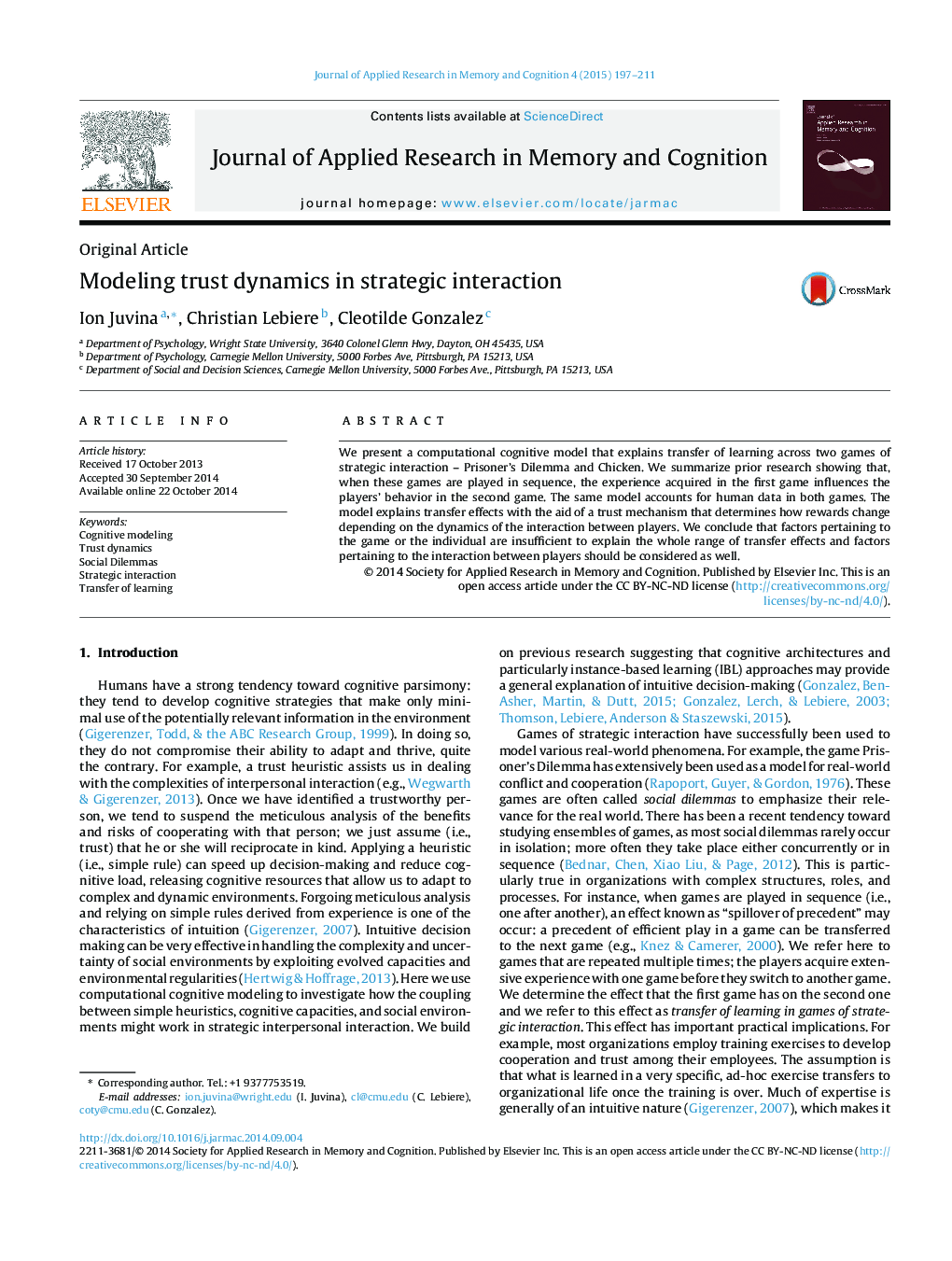| Article ID | Journal | Published Year | Pages | File Type |
|---|---|---|---|---|
| 881614 | Journal of Applied Research in Memory and Cognition | 2015 | 15 Pages |
We present a computational cognitive model that explains transfer of learning across two games of strategic interaction – Prisoner's Dilemma and Chicken. We summarize prior research showing that, when these games are played in sequence, the experience acquired in the first game influences the players’ behavior in the second game. The same model accounts for human data in both games. The model explains transfer effects with the aid of a trust mechanism that determines how rewards change depending on the dynamics of the interaction between players. We conclude that factors pertaining to the game or the individual are insufficient to explain the whole range of transfer effects and factors pertaining to the interaction between players should be considered as well.
